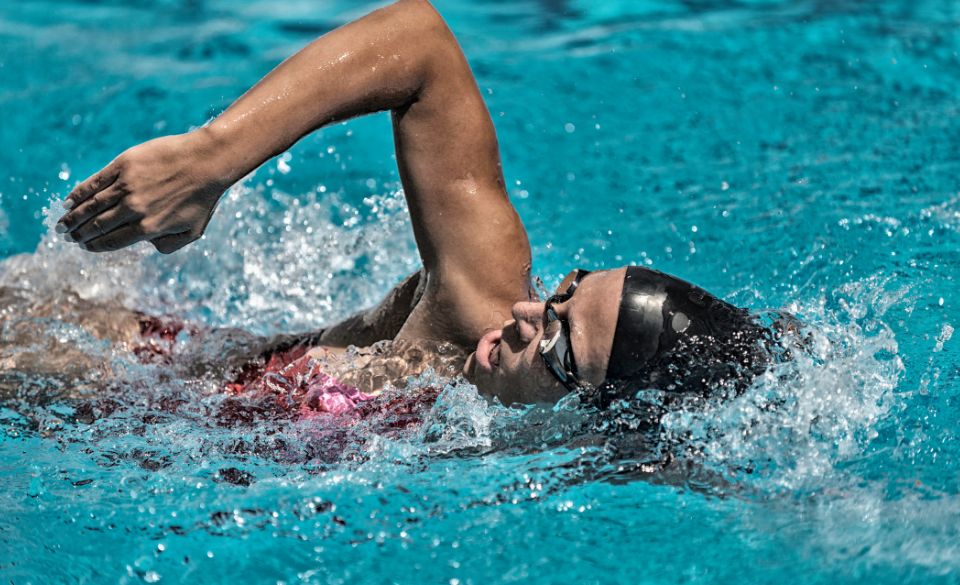
Benefits Of Swimming For Runners
Swimming is traditionally thought of as an individual, non-weight bearing exercise. Many runners, however, are discovering the benefits of adding this low-impact activity to their training routine. Swimming can help improve cardio, strengthen the body, protect the joints and further develop running form.
Benefits of Swimming For Runners
1. Strengthens Core Muscles
Many runners understand the importance of core strength, but overlook the absolute necessity of this area. Swimming strengthens the core muscles and helps with your stance, posture and balance. This can only help your running efficiency, as it will cut down on energy losses. Research based on Olympic athletes reveals that core strength is ‘essential for success’.
2. Increases Cardio Performance
Exercising in the pool helps improve your heart’s capacity for oxygen delivery. Long aerobic swims can help strengthen the heart muscle, reducing your chances for injury and cardiac stress during a run.
3. Low Impact on Joints
Running is great for fitness, but it can become difficult for the joints after a certain amount of stress and work. Swimming can help reduce stress on the joints by strengthening them – through both the repetitive movement in the pool, and the weight of the body pushed down by the water. This extra strength can reduce post run joint pain and likelihood of injury.
4. Improves Running Technique
The style and technique of running are essential to improve performance, but many runners fail to take the time to consider their strides. Swimming can help to focus on areas of form that are usually difficult to develop without the physical pool environment. The buoyancy of the water slows down running motion, and with the help of a coach, can help pinpoint any incorrect techniques that you may have.
How Much Should You Swim As A Runner
Swimming is an excellent athletic activity for runners. It has the ability to offer a number of benefits to the endurance athlete, and the key is to find the perfect balance of the two activities that suits your individual needs.
So, how much should you swim as a runner? It’s important to find a balance that fits with your training regime. If you are an avid runner who is also looking to improve your endurance, swimming is a great addition to your running routine, but it shouldn’t be a replacement for running.
Swim sessions should be used to complement and supplement your running activities rather than replace them. Swimming is low impact compared to running, so it can be a great way to cross-train and reduce the risk of injuries. As such, it’s important to include it in your training regime and find a balance that fits with your running activities.
For instance, if you’re a marathon runner, you should factor in two or three swim sessions per week. These should be used as an active recovery day instead of running. It’s important to swim at a low intensity so as not to interfere with your running performance.
On the other hand, if you’re a competitive runner, you may want to add more swimming into your weekly regime. For shorter distances, such as a 5K, you should incorporate three to four swim sessions per week on non-consecutive days. For longer distances, such as a 10K, four to six swim sessions per week are recommended. Again, these should be used as active recovery days and at a low intensity. Adding swim sessions to your running regime can help to boost your endurance, so you should adjust your program accordingly.
When it comes to distance swimming, you should set a realistic target for yourself. It’s important not to overdo it as this can have a negative impact on your running performance. A good place to start is to gradually build up your swim distance, starting with a 400-meters swim, and to allow yourself two to four rest days between swim sessions.
Ultimately, how much you should swim as a runner comes down to the individual. You should factor in your overall goals and adjust your swimming program accordingly. Whether you’re looking to add swim sessions for recovery and cross-training purposes or to boost your endurance, the key is to find a balance that suits your needs.
Last Words
Swimming can help runners in many ways, from the muscles it builds, to the workout it provides for the heart and the help it offers for technique and form. It’s a great way for runners to switch up their workouts, but also to improve their performance and help maintain their bodies physical health.


